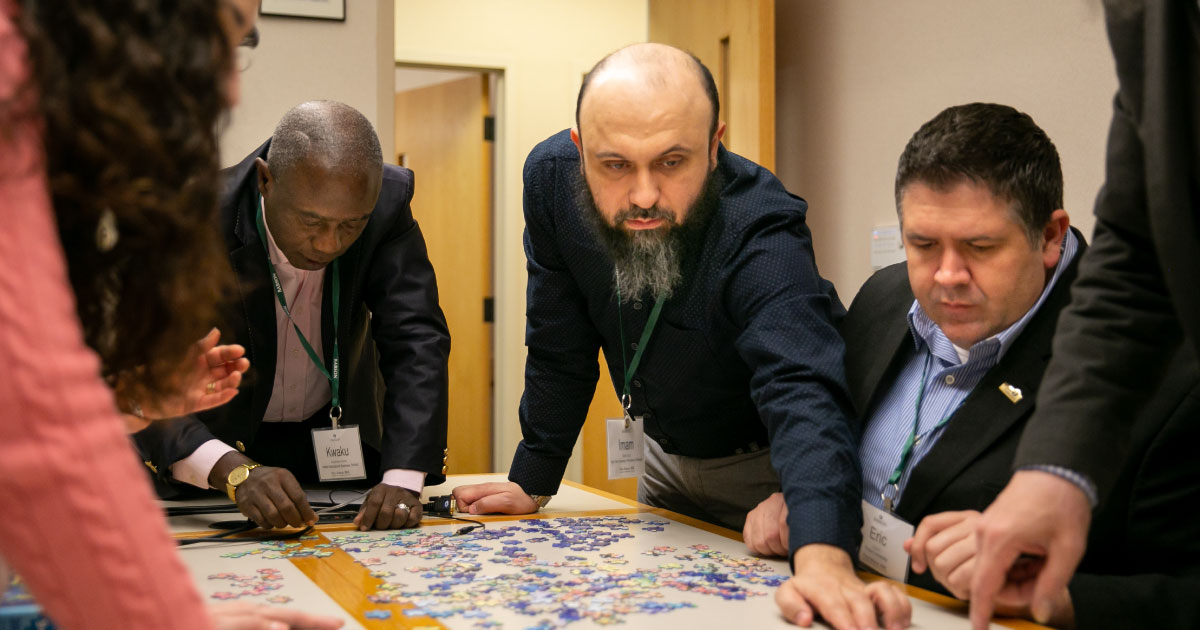To Expand Entrepreneurship, an Educate-the-Educators Approach

Bright and early on a Monday morning, Professor Heidi Neck asks a room full of educators if they are ready to engage.
Engagement will mean many things throughout the week as they progress through Price-Babson Symposium for Entrepreneurship Educators (SEE), an action-based program in which educators experience a variety of practice-based teaching, including Entrepreneurial Thought & Action®; co-create new ways of teaching; and build a network of like-minded entrepreneurship educators.
But at this very moment, engagement starts with paper boats.
The freshly folded boats are held prominently in the air, one for each of the 64 participants. As Neck narrates, the room acts out the scene. The boats calmly sail on the Indian Ocean, seagulls squawking in the distance. But big gusts of wind and waves cause damage to the front, the rear, and the mast—that damage represented by tears in the paper. Eventually, the boats sink to the bottom of the ocean.
What are we left with? Neck opens her own boat to reveal the tears and damage it maintained throughout the exercise has transformed it into something different. Neck calls it “the captain’s shirt.”
We know what you’re thinking. What does this have to do with entrepreneurship?
The answer, Neck tells participants, is everything.
Developing Entrepreneurial Educators
It’s about participation. Creativity. Determination. Team effort. And feeling a little silly and having fun as you wave a boat and squawk like a seagull.
And yes, it’s about entrepreneurship. As one participant puts it, “You thought you were making one thing, and ended up making something completely different.”
The exercise is the first of many that these Price-Babson SEE participants will work on through the program. As part of the Babson Academy for the Advancement of Global Entrepreneurial Learning, Price-Babson gathers educators from all over the world—this cohort hails from 15 countries spanning Ghana, South Korea, Trinidad and Tobago, the United States, and beyond—to gain the skills needed to pass on an entrepreneurial mindset to their students, and to shape the next generation of entrepreneurial leaders.
“Our mission is to elevate the art and craft of entrepreneurship education,” Neck tells participants. “Because how one teaches is just as important as what one teaches.”
This cohort, the 43rd in the program’s history, joins a network of 3,500+ from 750 institutions who have leveraged Babson’s Entrepreneurial Thought & Action methodology to expand entrepreneurship at their school or university. They’ll spend action-packed days learning from Neck and Babson’s distinguished entrepreneurship faculty about everything from design thinking to journey mapping to creating an experience—they’ll even have a chance to pitch ideas, too.
In the end they’ll have developed a new network and an understanding of how to be entrepreneurial themselves. And that’s important, Neck tells them. “If we cannot be entrepreneurial educators, then how can we expect to develop the entrepreneurial spirit of our students?”
Posted in Community



